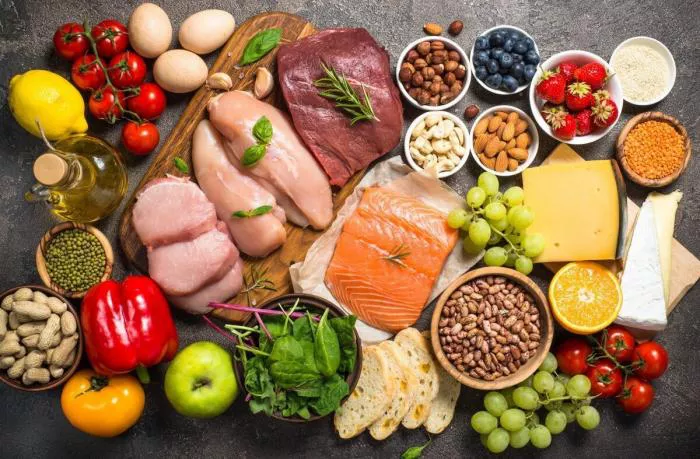Breastfeeding is a beautiful journey for mothers and their babies. It provides essential nutrients to the child and helps strengthen the bond between them. However, some mothers may find it challenging to maintain their weight or even gain weight during this time. This article will guide you on what to eat to gain weight while breastfeeding, ensuring both you and your baby stay healthy and nourished.
Understanding Weight Gain During Breastfeeding
When you breastfeed, your body requires additional calories. These calories help produce milk and keep you healthy. If you’re struggling to gain weight, you may need to adjust your diet. The goal is to choose nutrient-dense foods that provide the necessary calories without feeling overly full.
Nutrient-Dense Foods
Focus on foods that are rich in nutrients. These foods provide energy and essential vitamins and minerals for you and your baby. Here are some categories of nutrient-dense foods to include in your diet:
Healthy Fats
Healthy fats are a great source of calories. They help you gain weight while providing essential fatty acids for milk production. Include the following in your diet:
Avocados: High in healthy fats and calories, avocados can be added to salads or eaten as a spread.
Nuts and Seeds: Almonds, walnuts, chia seeds, and flaxseeds are calorie-dense and packed with nutrients. Snack on them or add them to smoothies.
Nut Butters: Peanut butter, almond butter, and other nut butters can be spread on whole-grain bread or added to smoothies for extra calories.
Olive Oil: Use olive oil in cooking or as a dressing for salads. It adds calories and healthy fats.
Whole Grains
Whole grains provide energy and fiber, which are important for your overall health. They help keep you full and satisfied. Consider adding these grains to your meals:
Oats: Start your day with oatmeal topped with fruits and nuts. It’s a great way to add calories and fiber.
Brown Rice: A versatile side dish, brown rice can be paired with vegetables and protein for a nutritious meal.
Quinoa: This protein-rich grain is excellent in salads or as a side dish. It’s high in calories and offers various nutrients.
Whole Wheat Bread: Use whole wheat bread for sandwiches or toast. It’s higher in nutrients than white bread.
Protein Sources
Protein is essential for recovery and milk production. Include a variety of protein sources in your meals:
Lean Meats: Chicken, turkey, and lean cuts of beef are great protein sources. They can be grilled, baked, or stir-fried.
Fish: Fatty fish like salmon and mackerel are high in omega-3 fatty acids, which are beneficial for your health. Aim for two servings of fish per week.
Eggs: Eggs are an excellent source of protein and can be prepared in many ways. They can be scrambled, boiled, or added to salads.
Dairy Products: Milk, yogurt, and cheese are high in protein and calcium. Choose full-fat versions for extra calories.
Fruits and Vegetables
While fruits and vegetables are not as calorie-dense as other food groups, they are essential for your overall health. They provide vitamins, minerals, and fiber. Choose higher-calorie options when possible:
Bananas: A great source of potassium and calories, bananas are perfect for snacking.
Sweet Potatoes: These are higher in calories than regular potatoes and provide vitamins A and C.
Dried Fruits: Raisins, apricots, and dates are calorie-dense and can be added to cereals or eaten as snacks.
Avocado: This fruit is rich in healthy fats and can be included in salads or eaten alone.
Meal Ideas for Weight Gain
To help you gain weight while breastfeeding, here are some meal ideas that combine the nutrient-dense foods mentioned:
Breakfast
Oatmeal with Toppings: Cook oats and top with banana slices, a scoop of almond butter, and a sprinkle of chia seeds.
Smoothie: Blend whole milk, a banana, a scoop of peanut butter, spinach, and a tablespoon of flaxseed for a nutrient-packed smoothie.
Lunch
Quinoa Salad: Mix cooked quinoa with black beans, cherry tomatoes, avocado, and a dressing made from olive oil and lemon juice.
Whole Wheat Sandwich: Prepare a sandwich with whole wheat bread, turkey, cheese, and lots of leafy greens.
Dinner
Grilled Salmon: Serve grilled salmon with a side of brown rice and steamed vegetables drizzled with olive oil.
Stir-Fried Chicken: Stir-fry lean chicken with broccoli, bell peppers, and carrots. Serve with brown rice or quinoa.
Snacks
Trail Mix: Create a mix of nuts, seeds, and dried fruit for a quick snack.
Yogurt Parfait: Layer full-fat yogurt with granola and fresh fruits for a delicious and calorie-rich snack.
Hydration and Its Importance
Staying hydrated is crucial, especially while breastfeeding. Drink plenty of water, but also consider high-calorie beverages. Smoothies and milkshakes can provide additional calories and hydration.
Avoid Empty Calories
While it may be tempting to indulge in junk food to gain weight, it’s important to focus on nutrient-dense options. Foods high in sugar and unhealthy fats may lead to quick weight gain but do not provide the necessary nutrients for you and your baby.
Listen to Your Body
Every woman’s body is different. Pay attention to your hunger and fullness cues. If you’re feeling hungry, opt for healthy snacks throughout the day.
Consult a Healthcare Professional
If you continue to struggle with weight gain while breastfeeding, consider consulting a healthcare professional or a registered dietitian. They can provide personalized advice tailored to your specific needs.
Conclusion
Gaining weight while breastfeeding is achievable by focusing on nutrient-dense foods that provide the necessary calories and nutrients. Include healthy fats, whole grains, protein sources, and a variety of fruits and vegetables in your diet.
Stay hydrated, avoid empty calories, and listen to your body’s cues. With the right approach, you can gain weight healthily while ensuring your baby gets the nourishment they need.
Related topics:


